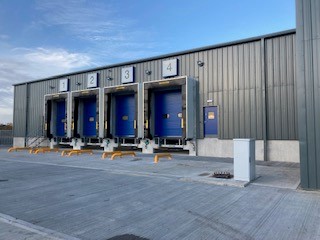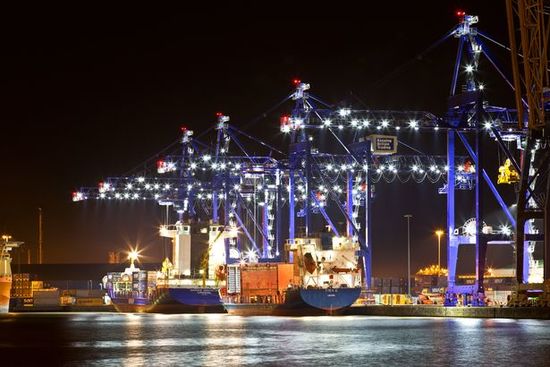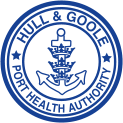Imported Food Control
The Authority's team of Portal Official Veterinarian's, Official Fish Inspectors and Port Health Inspectors complete Official Controls on all relevant third country imports in accordance with the requirements of assimilated EU Regulations and GB Law.
Products of Animal Origin and High Risk Food of Non-Animal Origin can only be imported into GB through an approved Border Control Post (BCP).
The Port of Hull (GBHUL21) is a Border Control Post designated to complete checks on all packaged products of animal origin for human and non-human consumption, high risk food of non-animal origin and plastic kitchenware's originating or consigned from China and Hong Kong.
The Port of Killingholme (GBKIL05) is a Border Control Post designated to complete checks on all products of animal origin for human and non-human consumption, high risk food of non-animal origin and plastic kitchenware's originating or consigned from China and Hong Kong.
Neither Border Control Post is approved to receive live animals.
A list of UK Border Control Posts and their designations is maintained on Gov.UK: https://www.gov.uk/government/publications/uk-border-control-posts-animal-and-animal-product-imports
All imports for Hull and Killingholme must be notified to the Authority on IPAFFS.
Details of our fee's for these services can be found on the OUR CHARGES page.
Devanning of Groupage Loads
Subject to availability, devans will be offered for rejected consignments where they form part of a multiple consignment/groupage load to allow cleared goods to move inland.
NB: Where an outcome to Official Controls is pending i.e. queries have been raised by the Official Veterinarian, devans will not be available unless there are extenuating circumstances. The person responsible for the load is therefore advised to action queries in a timely manner to resolve the hold and allow goods to clear.

Illegal, Unreported & Unregulated Fishing Controls (IUU)
Port Health Authority's are responsible for checking and verifying Catch Certificates for consignments of fishery products arriving into GB.
All requests for IUU catch certificate verification made to this Authority should be submitted using PHILIS DES. Please contact us if you require further information.
Import Controls
Documentary checks will be undertaken on all high and medium risk consignments imported into GB in accordance with the requirements of the Governments Border Target Operating Model https://www.gov.uk/government/publications/the-border-target-operating-model-august-2023
Low risk consignments will be subject to surveillance checks.
Identity and Physical checks may apply to your import. This can include the collection of food samples for analysis and/or microbiological examination to assist our judgement or for local/national surveillance purposes. Consignments may be detained pending the receipt of sample results and importers are therefore advised to plan accordingly.
Rejected consignments may be destroyed or re-exported, according to risk, at the importers expense.
Importers must pre-notify BCPs at least 1 working day before the physical arrival of the consignment by completing Part 1 of the Common Health Entry Document (CHED-D) on IPAFFS.
Costs incurred as a result of the completion of controls will be recharged by this Authority to importers.

Organic Imports
The Organic Products Regulations 2009 require that imports of organic produce must be pre-notified to the Authority in advance of arrival. Each consignment must be accompanied by an organic Certificate of Inspection (COI). This certificate enables our Officers to check and verify the provenance of such consignments and endorse bona-fide organic goods.
Importers and their agents are advised to consult with our Inspectors before proceeding.
All requests for the endorsement of organic COI's should be submitted to the Authority using PHILIS DES. Please contact us if you require further information.
Currently there is a fee of £50 per COI for this service.
Further information on the requirements for the import of organic food and feed is available here: https://www.gov.uk/guidance/importing-organic-food-to-the-uk
The derogation on the requirement for Certificates of Inspection (COIs) for organic goods entering GB from the EU, EEA and Switzerland has been extended until the 1 February 2027.



